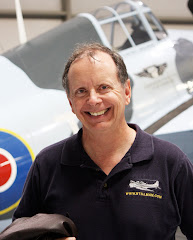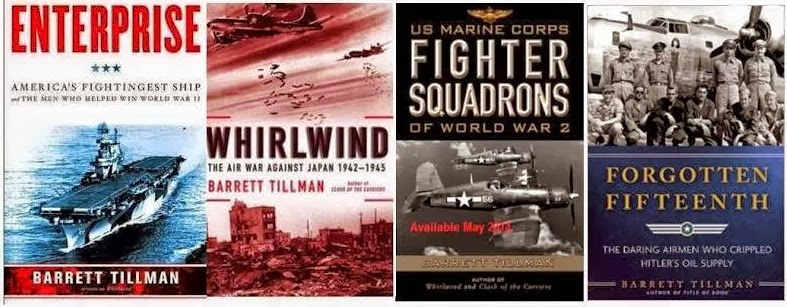Twenty-one years ago this month America and the world lost an exceptional man.
During World War II, South Dakota farm boy Joseph J. Foss became an American icon. He rose to national prominence for his combat heroism flying at Guadalcanal in the Solomon Islands, engaging Japanese aircraft almost daily for three months.
I was privileged to call Joe a friend. But so were legions of others. I never knew anyone with so many devoted friends—not merely acquaintances or colleagues.
Joe grew up on a farm near Sioux Falls, inheriting the work ethic of his Norwegian emigrant family. Hard work and independence formed the core of his character. At seventeen he coped with the shock of losing his father in a freak accident, and continued pursuing his ambition.
Enamored with aviation from childhood, Joe paid off his family’s mortgage, put himself through college, and entered naval pilot training. He won his wings of gold in 1941, opting for the Marine Corps “because I wanted in a fightin’ outfit.” By cleverly gaming “the system,” he avoided assignments in gliders and photo reconnaissance to gain his goal: flying Grumman F4F Wildcats.
Then-Captain Foss arrived at Guadalcanal with Marine Fighter Squadron 121 in October 1942. With experience to match his talent, he shot his way to the top of America’s ace roster, becoming the first to match the World War I score of Captain Eddie Rickenbacker with 26 victories.
Joes’ record was not easily achieved. He was shot down or force landed four times but he kept coming back for more. When he returned home in early 1943, he received the Medal of Honor from President Franklin D. Roosevelt only four months after leaving combat.
Life magazine’s cover of June 7, 1943, showed Joe wearing his medal over the title “America’s No. 1 Ace.” Joe retained the title until Army Air Forces Captain Richard Bong reached 28 in the Pacific during April 1944. In 1945 Bong ran his tally to forty, becoming America’s all-time ace of aces, but died in an accident that summer.
Six other American aces exceeded 26 victories during World War II, and Joe remains tied for seventh on the all-time list.
After tolerating “the dancing bear act” selling war bonds, Joe formed his own squadron and took VMF-115 to the Solomons in 1944. But he contracted malaria and was waylaid for months in recovering at home.
At war’s end Joe remained the Marine Corps’ leading ace, although the service foolishly accepted the 28 unverified claims of Gregory “Pappy” Boyington. All of Foss’ 26 victories were scored in Marine service. Boyington’s total recognized by the American Fighter Aces Association is 24 including two (versus six claimed) with the Flying Tigers. Eight decades later the Marines still have not corrected the record.
Returning to South Dakota, Joe formed a flying business and helped establish the South Dakota Air National Guard. During the Korean War, Colonel Foss served in the Central Air Defense Command where he broke the boredom by practicing duck calls. Frequently his expressive clucking and quacking reduced his colleagues to fits of laughter.
Eventually Joe rose to brigadier general in the Air Force Reserve, retiring in 1975.
Joe could not avoid public service. He was elected to the state legislature and subsequently he won two terms as governor.
From thereon Joe was frequently in the public eye. In 1959 he founded the American Football League, leading to the Super Bowl. Along the way he was national chairman of Easter Seals, partly because a daughter suffered from polio. Also, he was president of the National Rifle Association and the fighter aces association; was invited into the elite Golden Eagles naval aviation society; and was elected to the National Aviation Hall of Fame.
As governor of South Dakota, Joe had mentored a youngster named Tom Brokaw. Decades later Brokaw included Joe in the best seller The Greatest Generation. Joe shunned the notion: “We weren’t the greatest, we just did what we had to do.” He insisted that the republic’s founders were The Greatest.
He was right.
A Marine contemporary of Joe’s maintained “the old corps” ethic by dividing the human race into two categories: copers and non-copers. Alternatively, grass eaters and meat eaters.
Joe was a coping carnivore. The roller-coaster ride of his life threw repeated challenges in his path, from the crucible of combat and the heights of glory to the grief of losing friends of his youth plus two children and a marriage.
At age fifty he nearly died from accidental poisoning, casually sucking on a sprayed corn stalk while hunting pheasant. He often referred to himself in the third person, saying, “The Grim Reaper had Old Joe backed up to the one-yard line and was about to score.” His recovery was an epiphany: from there on Joe was an evangelistic Christian. Not the lapel-grabbing variety, but never reluctant to express his faith.
At dedication of the National World War II Museum’s Pacific wing in 2001 Joe said, “They told me not to mention God or guns so that’s what I’m gonna talk about.” The audience laughed and applauded—except for the marine general sitting behind him.
Joe and his beloved Didi founded the Foss Institute that year, providing patriotic lesson plans and veterans as speakers to school classes.
In 2002 Joe made headlines when Phoenix airport security detained him en route to speak at West Point. The guards worried that his Medal of Honor’s beveled edges “might hurt someone.” Joe exclaimed, “Hurt someone? Why do you suppose they gave me the medal?”
That October Joe suffered a stroke and lapsed into a coma. He remained comatose nearly three months, and it occurred to me that his final battle mirrored his Guadalcanal battles between October 1942 and January 1943.
Joe died in Scottsdale Arizona, January 1, 2003, age 87.
Joe’s friends and contemporaries accurately described him as “bigger than life” and “a man’s man.” But mainly I remember how much fun it was to know Joe Foss, whether shooting together or enjoying his Christmas oyster soup.
Joe Foss: an American original.



